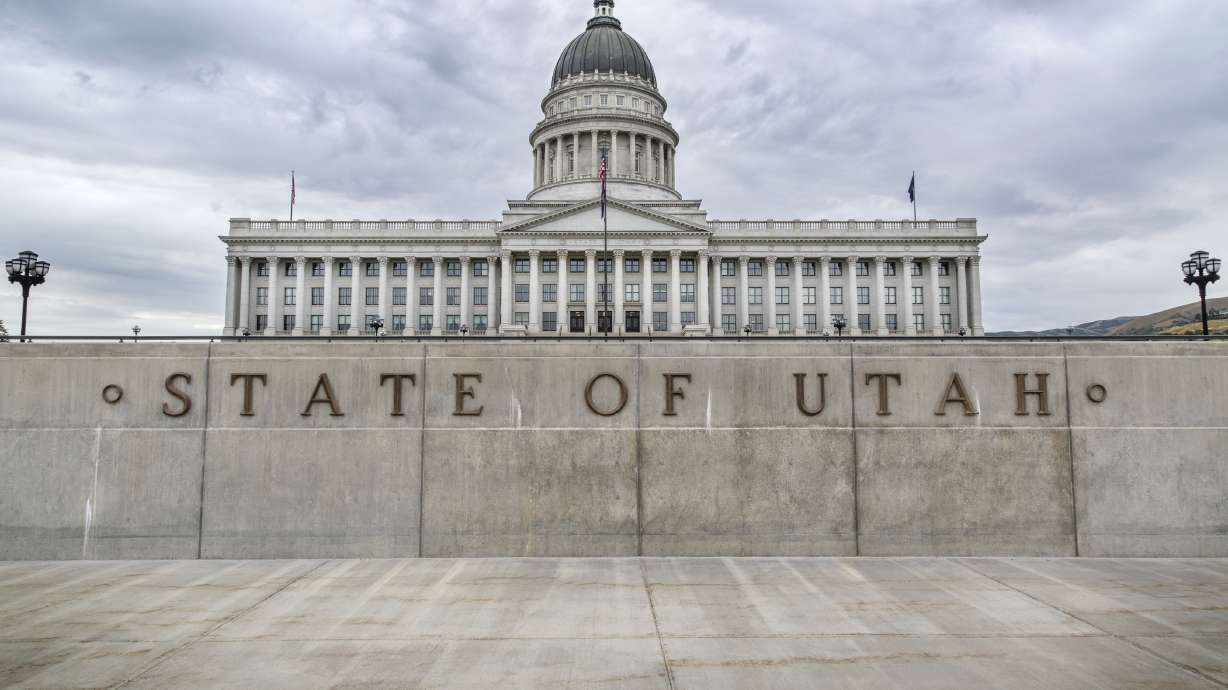Estimated read time: 3-4 minutes
This archived news story is available only for your personal, non-commercial use. Information in the story may be outdated or superseded by additional information. Reading or replaying the story in its archived form does not constitute a republication of the story.
SALT LAKE CITY — What started out as a dinner conversation with a friend asking why Utah has the death penalty turned into a state lawmaker pushing a bill through the Senate to end the practice.
Though the number of senators favoring SB189 dropped from a preliminary vote, the bill passed 15-13 on Wednesday. The proposal now moves to the House, where Speaker Greg Hughes, R-Draper, said he won't tell representatives how to vote but will freely share why he believes capital punishment should be repealed.
At that dinner, Sen. Stephen Urquhart, R-St. George, said he explained all the theoretical reasons behind the law, but as he got into the realities, he decided it doesn't work. He said he can't say he morally or philosophically opposes the death penalty, but he has pragmatic concerns about it.
Urquhart said capital punishment is too expensive, doesn't deter crime, turns killers into "rock stars" and "tortures" victims' families who have to endure decades of court appeals.
"We pay a lot of money to further victimize families," he said.
Already last fall, some conservative lawmakers said their positions on capital punishment were evolving and that they were willing to talk about abolishing it in Utah. Urquhart said it was "neat" to talk to his colleagues and see them move on the issue.
He also said he was "shocked" by House members who have told him the past two days that they favor the bill, some of whom "I would have bet and lost a lot of money" on whether they support it.
SB189 says aggravated murder committed before May 10, 2016, and for which the death penalty has not been sought, may not be charged as a capital offense. It would also outlaw capital punishment in aggravated murder cases from that date forward.
During Senate floor debate, Sen. Todd Weiler, R-Woods Cross, argued that Utah doesn't have a death penalty problem but has a case management problem. In Virginia, he said, appeals are over in seven years on average.
"If Utah cares about victims, survivors and costs, we should duplicate Virginia's protocol rather than just punting," he said.
Weiler also questioned a legislative report showing capital cases in Utah cost $1.6 million, saying it was compiled with "faulty" research.
Sen. Lyle Hillyard, R-Logan, said taking the death penalty off the table does a "great injustice" to society, law enforcement and most particularly the victims.
"It should be the victims' families' choice, not ours," he said. "Maybe it will help them."
The bill would not affect the nine men currently on Utah's death row. The state has executed seven men since the nationwide moratorium on the death penalty was lifted in 1976, the last one being Ronnie Lee Gardner in 2010. Four died by lethal injection and three by firing squad.
Sen. Mark Madsen, R-Saratoga Springs, said, "I'll shoot 'em, I'll pull the switch if they're guilty."
But he said he worries that faulty eyewitness testimony prevalent in murder cases and prosecutorial and police misconduct leads to false convictions.
"While I don't philosophically have a problem with the death penalty, as I mentioned, I also do not have a blind, misguided faith the government gets it right every time," Madsen said. "We're talking about truly an irreversible error here."








